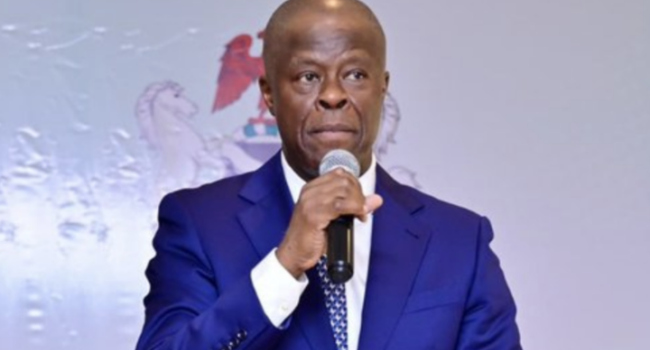The Federal Government is preparing for the potential effects of a 14 percent tariff recently placed on Nigerian exports by the United States. A strategic review by the Economic Management Team is now in motion.
Finance Minister Wale Edun made this clear at a recent forum in Abuja. According to him, the aim is to assess all possible outcomes and guide the country through any challenges that may arise.
Despite the tension, Nigeria might not feel the full weight of the tariff. The new U.S. policy excludes oil and mineral-related exports, which make up the bulk of Nigeria’s trade with America. Edun explained that Nigeria has long maintained a 27 percent tariff on U.S. imports. Over the last three years, trade has consistently favored Nigeria. In 2024 alone, exports hit N5.5 trillion, with oil and minerals making up 92 percent of that figure.
This detail changes the outlook. Unless there is a major drop in global oil prices, the new tariff may not significantly harm the economy. Still, the Finance Minister stressed the need to stay alert. A drop in oil prices could reduce national income. To stay ahead, the government is working to boost oil production and explore new revenue sources.

Agencies like the FIRS and Customs are being pushed to increase non-oil revenue. At the same time, the administration is looking into fresh ways to fund key projects without piling on more debt.
The forum also raised deep concerns about Nigeria’s State-Owned Enterprises. These organizations play major roles in energy, telecom, and infrastructure. Yet, many are underperforming. Edun said inefficiency, waste, and poor oversight have drained value from these vital assets. The issue, he said, is not whether SOEs should exist, but how they can be restructured to succeed.
Corporate governance, he emphasized, is the key. A lack of it has led to lost funds, weak performance, and fading public trust. The government, through the Ministry of Finance Incorporated (MOFI), is taking steps to fix that. MOFI, originally founded in 1959 and recently restructured, now acts as an asset manager for government investments.
One of its new tools is the Corporate Governance Scorecard. This initiative will track and improve the performance of public enterprises. Global partners like the World Bank are also supporting these efforts to bring transparency and accountability to the system.
Power Minister Adebayo Adelabu added more insight. He revealed that government-owned power plants, despite a total capacity of 4,000 megawatts, often generate only 500 to 800 megawatts. Compared to private-sector plants like Azura and Transcorp, the gap in performance is alarming. Adelabu insisted that poor management and weak governance are the main reasons for this failure.
Meanwhile, MOFI’s CEO, Dr. Amstrong Ume Takang, announced a major audit of national assets. The review will determine the current state of each holding. Based on this, the government will decide what to keep, reform, or sell. This move is meant to align public assets with the country’s development goals.
As global policies shift and new economic challenges emerge, Nigeria is working to stay ahead. The mix of trade pressure, oil dependency, and structural inefficiencies makes this a critical time. Policymakers are not waiting for a crisis. They’re choosing foresight, reform, and strategy.
The message from Abuja is clear: Nigeria is ready to adapt.



